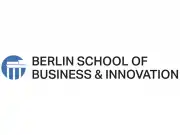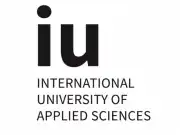Master's degree programs in Germany
- Brief overview of Master's programs in Germany
- Features of Master's programs in Germany
- Advantages of Master's programs in Germany
- Challenges of Master's programs in Germany
- German universities offering Master's programs
- Admission requirements for Master's programs in Germany
- Required documents for Master's program applications in Germany
- Tuition costs for Master's programs in Germany
- Scholarships and grants for Master's programs in Germany
- Career prospects after Master's programs in Germany
- Is it worth studying Master's programs in Germany?
- Frequently Asked Questions

Master of Arts - User Experience Design
Berlin School of Business and InnovationDegree awarded by University for the Creative Arts (UCA)
How can design help us live in a rapidly changing world? The MA User Experience Design program at UCA prepares you to become a human-centered, multidisciplinary, research-led designer ready for future challenges and opportunities…

Master of Science - Data Science
Arden UniversityFrom basic mathematical ideas to cutting-edge subjects like deep learning, machine learning, artificial intelligence, and cloud computing, our data science degree covers it all. You will become proficient with software tools like Jupyter Notebooks and Tableau, as well as programming languages like…

Master of Science - Cyber Security
Arden UniversityOur curriculum delves deeply into the topic of cyber security, covering everything from recognizing dangers and weaknesses in contemporary networks and infrastructures to comprehending fundamental principles and standards. You will get the know-how to create safe systems that can withstand possible…

Master - Online Marketing
IU International University of Applied SciencesEverything in the digital realm is always changing. Is that so? Keep going until you earn a Master of Science in Online Marketing and are a master strategist in the fields of social media, customer relationship management, mobile apps, and the online. Regardless of the medium, you will discover how…

Master - Product Management
IU International University of Applied SciencesBoth horizontal and vertical structures form the basis of corporate processes. As a result, product management is in charge of all matters pertaining to products, including procurement, marketing, and sales, and functional areas and products are organized in a matrix. Experts with a more nuanced grasp…

Master - Online Marketing (1 year)
IU International University of Applied SciencesIn Master Online Marketing, you will learn how to convince your target audience on any platform, be it the web, mobile, social media, or customer relationship management.
Because our 60-ECTS Program is the ideal supplement to your pre-degree if you already have relevant work experience and…

Master - Product Management (1 year)
IU International University of Applied SciencesIs it your goal as a product manager to launch exciting new products? You need to look at the product as a whole now, rather than only in isolation, as was necessary in the past.
It is still required to have technical abilities. Talents in leadership, planning, and data analysis, together…
Brief overview of Master's programs in Germany
Germany is one of the most attractive destinations for higher education in Europe. Master's programs here are distinguished by high academic standards, a wide range of specializations, and the possibility of studying in English. Master's programs in Germany typically last 1 to 2 years and include both theoretical studies and applied research. International students constitute a significant portion of the student community, creating a truly international educational environment.
Most master's programs at public universities in Germany are tuition-free or require only a minimal administrative fee, which is especially notable compared to the high tuition costs in other European and North American countries.
Features of Master's programs in Germany
Master's programs in Germany have several unique characteristics:
- Internationalization: Over 1,500 programs are offered entirely in English, making Germany accessible to international students without German language proficiency.
- Practical Orientation: The curriculum actively incorporates research projects and internships with companies, allowing students to develop applied skills and build professional networks.
- Engineering, Natural Sciences, IT are the most popular and in-demand fields where Germany is considered a global leader.
- Freedom of Choice: Students can customize part of their study plan, select elective courses, and participate in academic mobility programs (such as Erasmus+).
- Tuition-free at Public Universities: This makes Germany particularly attractive for students seeking quality education without significant financial investment.
Advantages of Master's programs in Germany
Studying for a master's degree in Germany offers international students several key benefits:
- High Education Quality: German universities rank highly in global rankings like QS, THE, and ARWU.
- Affordable Living and Study Costs: In most states, students only pay a semester fee ranging from €150 to €350.
- Work During Studies: Students are permitted to work up to 120 full or 240 half days per year.
- Post-Graduation Stay: After completing their master's, graduates can remain in Germany for 18 months to seek employment.
- Direct Access to German Job Market: Germany faces shortages of specialists in IT, engineering, healthcare, etc.
- Internationally Recognized Degree: A German master's degree is valued worldwide.
Challenges of Master's programs in Germany
Despite obvious advantages, there are some difficulties international students may encounter:
- Bureaucracy: The application process can be complex and time-consuming.
Solution: Start preparations early and consult official sources (DAAD, Uni-Assist). - Language Barrier: While studies may be in English, German is needed for daily life and work.
Solution: Enroll in language courses before or during your studies. - Competition for Popular Programs: Especially in technical and business fields.
Solution: Apply to multiple universities and carefully prepare your motivation letter. - Adapting to Education System: Independent work, deadlines, and high standards.
Solution: Utilize student resources, join study groups, and don't hesitate to ask for help.
German universities offering Master's programs
| University | City | Notable Fields |
|---|---|---|
| Technische Universität München | Munich | Engineering, IT, Natural Sciences |
| Ludwig-Maximilians-Universität | Munich | Humanities and Social Sciences |
| Humboldt-Universität zu Berlin | Berlin | Political Science, History, Philosophy |
| RWTH Aachen University | Aachen | Mechanical Engineering, Technology |
| Universität Heidelberg | Heidelberg | Medicine, Biology |
| Freie Universität Berlin | Berlin | International Relations, Culture |
Admission requirements for Master's programs in Germany
- Bachelor's degree recognized in Germany (can be verified via anabin.de)
- Proof of English (IELTS, TOEFL) or German proficiency (TestDaF, DSH) - depending on program language
- Motivation letter (Motivationsschreiben)
- Academic CV
- Recommendation letters from professors or employers
- Portfolio (for creative and architecture specialties)
Required documents for Master's program applications in Germany
- Higher education diploma + academic transcript (with translation)
- Language certificate (English or German)
- CV
- Motivation letter
- 1–2 recommendation letters
- Passport
- Passport-sized photo
- Proof of finances (blocked account or scholarship)
- Additional documents depending on university
Tuition costs for Master's programs in Germany
Public universities in Germany are generally tuition-free. However, students pay a semester fee:
| Expense | Average Amount |
|---|---|
| Semester fee | €150–350 |
| Health insurance | €110–120/month |
| Housing | €250–600/month |
| Food and transportation | €200–300/month |
| Other expenses | €100–150/month |
| Total monthly | ~€850–1,200 |
In Baden-Württemberg and Saxony, additional fees up to €1,500 per semester may apply for non-EU students.
Scholarships and grants for Master's programs in Germany
Main scholarships:
- DAAD (German Academic Exchange Service): from €861/month + health insurance, travel, language courses
- Deutschlandstipendium: €300/month (half from government, half from private sponsors)
- Erasmus+: support for exchange programs
- Political party foundations:
- Heinrich Böll Stiftung
- Friedrich-Ebert-Stiftung
- Konrad-Adenauer-Stiftung
- University-specific scholarships - check individual university websites
Career prospects after Master's programs in Germany
Germany is one of few EU countries where international graduates successfully find employment after studies. A German university degree is highly valued by employers both in Germany and abroad.
What awaits graduates:
- Job Seeker Visa: 18 months after program completion
- High Demand for Skilled Professionals: Especially in IT, engineering, medicine, biotechnology, renewable energy, and data science
- Average Starting Salaries:
- IT and Engineering — €45,000–60,000/year
- Finance and Consulting — €50,000–65,000/year
- Social Sciences and Humanities — €35,000–45,000/year
Example Employers:
- Siemens, Bosch, SAP, BMW, Volkswagen, Deutsche Bank, Fraunhofer Institute
- Small and medium enterprises (Mittelstand), especially in regions with specialist shortages
Opportunities:
- EU Blue Card with salary from €45,300/year
- Visa extension and permanent residence after 33 months of work (or 21 months with B1 language proficiency)
Is it worth studying Master's programs in Germany?
If you're seeking quality, affordable, and internationally recognized education, a German master's program is one of the best choices. No other European country combines such high academic standards with low tuition costs and excellent career prospects.
Pros:
- World-class education
- Free or low-cost tuition
- Opportunity to combine work and study
- Support from government and scholarship organizations
- High chances to stay and build a career in Europe
Ideal For:
- Graduates in technical, natural science, and IT fields
- Those pursuing academic careers or PhD
- Students aiming for international careers
Studying in Germany is an investment that pays off both in terms of knowledge and future career opportunities.
Frequently Asked Questions
- Is German language required for master's studies?
No, if the program is in English. However, German improves employment prospects. - How much is the blocked account for visa?
For 2025 — €11,208 per year (€934 per month). - Can I work while studying?
Yes, international students can work up to 120 full or 240 half days per year. - How long can I stay after graduation?
Up to 18 months for job searching. - Can I apply to multiple universities?
Yes, it's recommended to apply to 3–5 universities via Uni-Assist or directly.